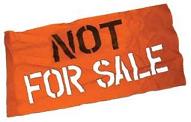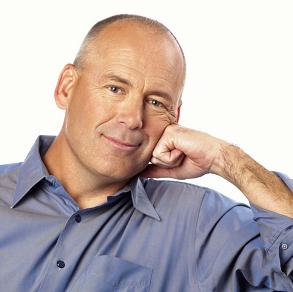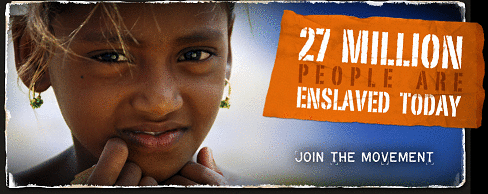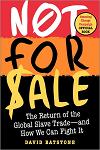Listen to our interview with David Batstone
 |
|
“…you transform whatever |
David Batstone’s business card reads: “I am not for sale. You are not for sale. No one should be for sale.” This professor of ethics at University of San Francisco, entrepreneur, author, and social activist — founded the nonprofit Not For Sale when he discovered slavery in his own back yard; Berkeley, that is.
 |
|
David Batstone, Professor of Ethics at University |
|
“We give you tools to act locally and show |
Batstone (Ph.D. ’89) learned that Lakireddy Reddy, owner of Pasand restaurant, had kept cook and wait staff as slaves. Reddy confessed to felonies, including conspiracy to commit immigration fraud and transporting a minor for sex, only after a tragic accident came to light: A roommate found two teenage sisters — Chanti and Lalitha Prattipati — unconscious in a Berkeley apartment also owned by Reddy. They were poisoned by carbon monoxide leaking from a blocked heating vent, and Chanti was pronounced dead at Alta Bates Hospital. An investigation revealed that Reddy and several family members used fake visas and false identities to traffic adults and children into the United States from India. In many cases Reddy secured visas under the guise that these were skilled technology professionals who would be placed in software companies. They ended up working as waiters, cooks, and dishwashers at Pasand or other businesses Reddy owned, forced to work long hours for minimal wages they returned to him as rent for one of his apartments. Reddy had threatened to turn them in to the authorities as illegal aliens if they tried to escape.
Shocked that his favorite restaurant had become a hub for a trafficking ring, Batstone realized that far from being a thing of the past, slavery likely crosses our path on a regular basis without our awareness. His research reveals there are more than 27 million slaves in the world today, more than at the height of the Trans-Atlantic slave trade. A tool called Slavery Map: http://slaverymap.org on the Not For Sale website, www.notforsalecampaign.org, allows users to see, post, and report where slavery exists today.
“The shoes I wear, the coffee I drink, the sugar I put in my coffee — may all be invisible links to slavery,” Batstone says. “Being free to choose our destiny is fundamental to how we see ourselves. That’s why human trafficking strikes a nerve, and people want to help.”
 Indeed, in two years of operation, Not For Sale has 42 state operations; projects in Uganda, Peru, Nepal, Thailand, and Ghana; eight full time staff members; and countless volunteers, including some top sports and music celebrities. The organization’s success, Batstone says, lies in a method they call “Open Source Activism,” derived from the high tech industry. “We don’t write the rules. We give you tools to act locally and show you how your local action connects with global activism.”
Indeed, in two years of operation, Not For Sale has 42 state operations; projects in Uganda, Peru, Nepal, Thailand, and Ghana; eight full time staff members; and countless volunteers, including some top sports and music celebrities. The organization’s success, Batstone says, lies in a method they call “Open Source Activism,” derived from the high tech industry. “We don’t write the rules. We give you tools to act locally and show you how your local action connects with global activism.”
Another Not For Sale tool is Free2Work (www.Free2Work.org), a wiki, where users publish and find information on whether products they use are linked to slavery. The International Human Rights Forum now downloads its data into Not For Sale’s wiki. In addition to the wiki, Not For Sale invites companies to be Free2Work companies. These companies pledge transparency and allow investigators trained at Not For Sale to examine their operations and ensure they are free from slavery.
Not For Sale’s success undoubtedly arises from Batstone’s experience as an investment banker working in underdeveloped nations. The nonprofit is part of a social venture Batstone cofounded called Right Reality, which also includes business consulting services and a company that builds and sells organic farming tools. “Right Reality is about helping nonprofits be financially viable, and companies be socially responsible,” he says.
|
|
The thread running through all of Batstone’s work? He calls it a passion for transformation, and credits his GTU education with nurturing it. He uses another Not For Sale initiative called Free To Play as an example. It started with Batstone’s kids’ basketball teams: If a kid scored a basket they gave ten cents to free kids somewhere else on the globe. Now, a pitcher for the San Francisco Giants and a left fielder for the St. Louis Cardinals give to Not For Sale when they score home runs; an Oakland Raiders linebacker gives when he makes a tackle; an international skating champion gives each time he performs a triple toe loop.
“The beauty is you don’t have to be a celebrity to participate,” Batstone says. “The idea is you transform whatever your gifts are to give a gift to someone else, to free another person.”

 David Batstone is the author of
David Batstone is the author of